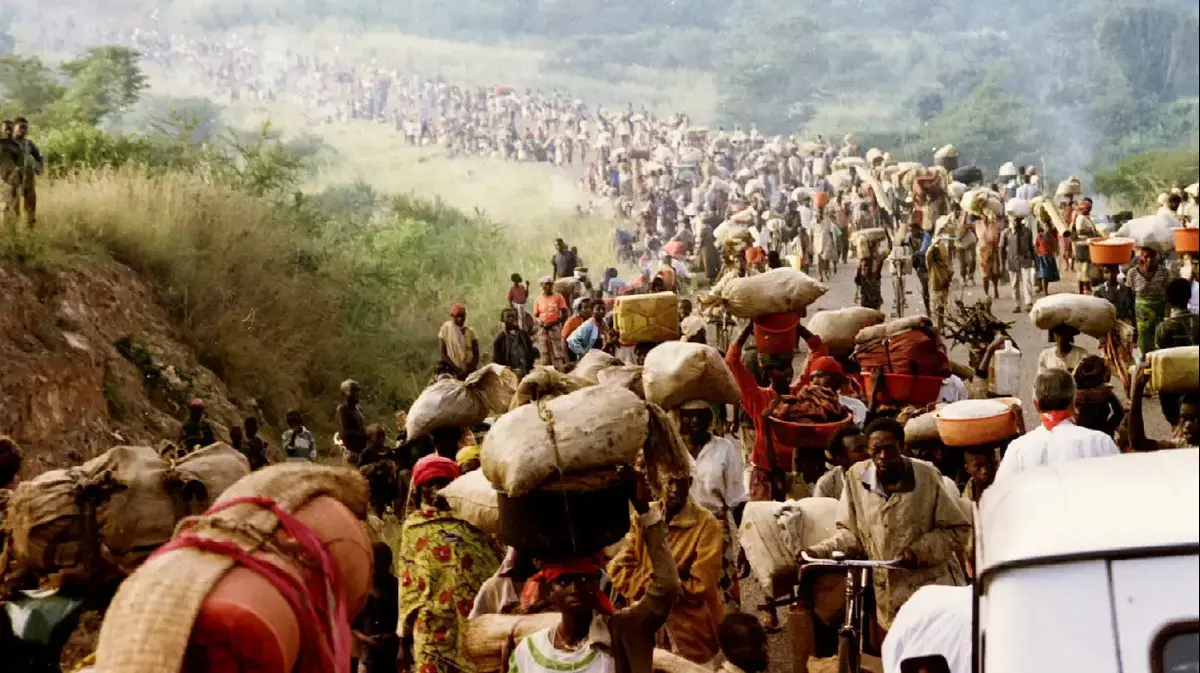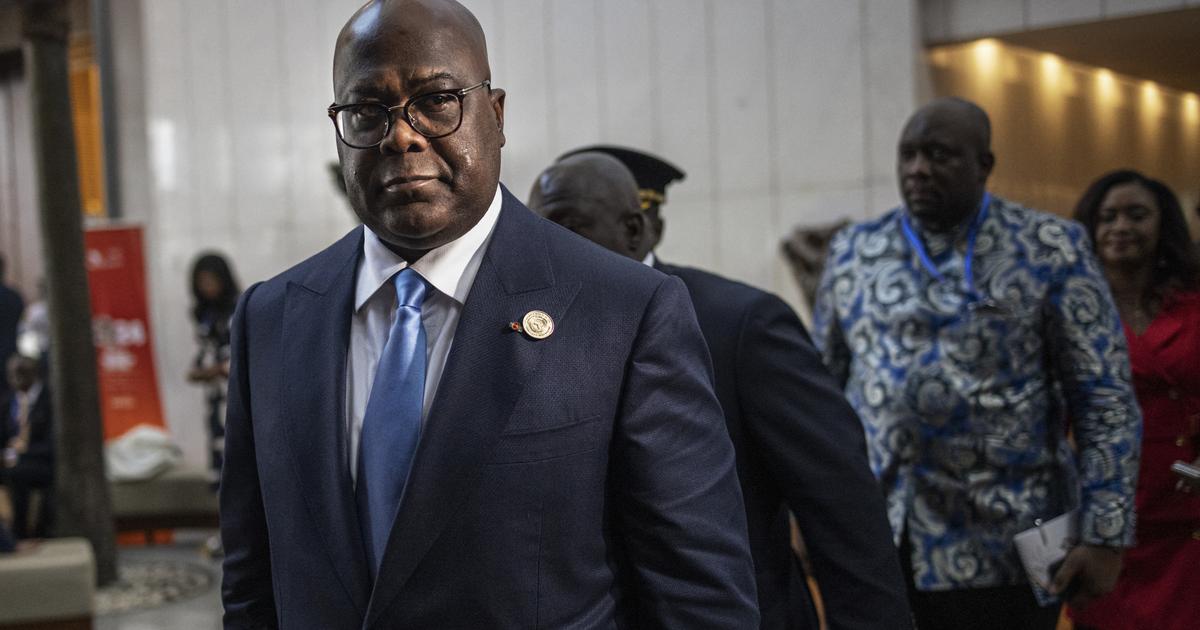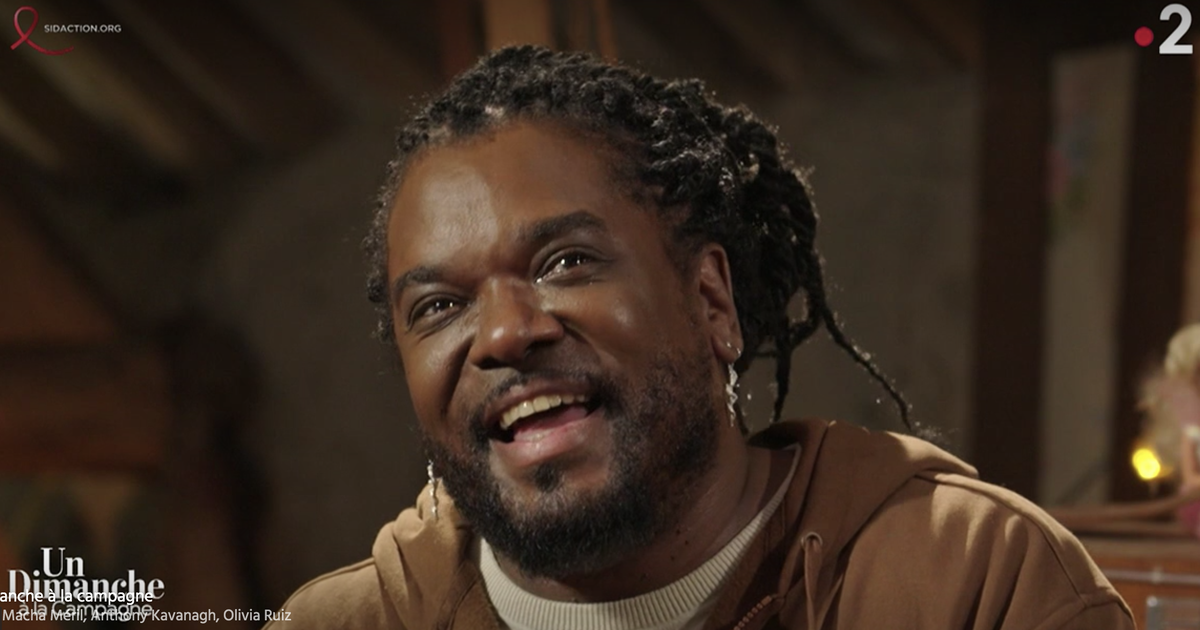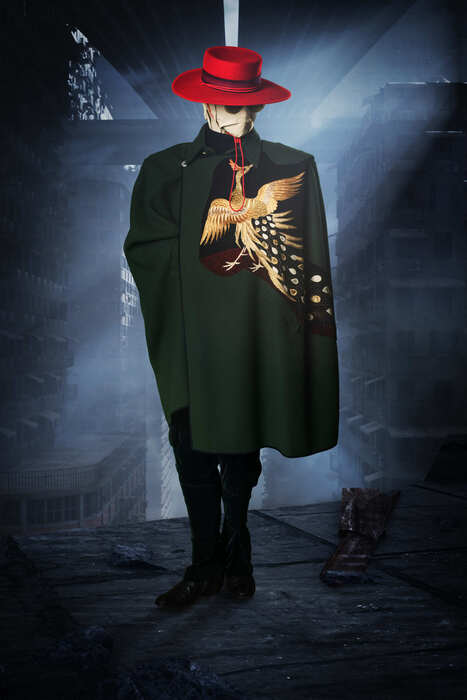Enlarge image
Gold mine near Misisi in the east of the Democratic Republic of the Congo
Photo: Arsène Mpiana / DER SPIEGEL
One of the rebel leaders recently suggested via WhatsApp whether we – the journalists and he – should build a gold business together.
Times have apparently gotten tougher, because at the beginning of December the European Union imposed sanctions on the rebel group Mai-Mai Yakutumba.
"We're angry," writes the boss's assistant.
He leaves it open whether they are also angry with us journalists.
Business comes first.
The sanctions affect two actors that SPIEGEL reported on together with Deutsche Welle in September 2022.
It was a research of the extremes, between the glittering worlds of Dubai and hand-dug tunnels without oxygen in the east of the Democratic Republic of the Congo.
Research into blood gold that also finds its way to Europe.
One of the alleged beneficiaries of this dirty business is based in Dubai: the Belgian gold dealer Alain Goetz.
Convicted of money laundering and fraud.
I'll meet him shortly before Christmas 2021, in a luxury hotel near Dubai airport, we'll talk about the paths of the gold, its origin, and deals in the Congo.
Back then, Goetz was still full of big words, he wanted to work with the UN and the EU, and wanted to get rid of the image of the villain.
Three months later, US authorities imposed harsh sanctions on him for sourcing gold from areas controlled by armed groups, including the Mai-Mai Yakutumba.
The glittering world is beginning to crumble.
Misisi in the east of the Democratic Republic of the Congo is a gold mining town: small shops everywhere, more like back rooms where the owners buy gold and then smuggle it on.
Between the houses women, men and children dig holes in the ground and look for the precious metal.
In a low voice they all say: They have to pay protection money to the Mai-Mai rebels.
Every gram of gold makes the armed group richer and also finances their atrocities against the civilian population.
But how can you report from an area where rebels rule and where on-the-spot research is extremely difficult?
We get in touch with the Mai-Mai through an intermediary
up, they finally agree to a trip.
It's hard to say exactly what her interest is.
Our companions emphasize again and again that they are not rebels, but a self-defense movement.
The fighters want to appear legitimate.
However, they prefer to avoid the topic of gold.
In the end we wait in vain for the leader, William Yakutumba, and are always put off.
We spend the night in a very basic hostel, obviously belonging to the rebels or at least connected to them.
A privacy screen is quickly pushed aside for our car and then hurriedly closed again.
The doors of the rooms can only be locked from the outside, it is a rather restless night.
It gets loud outside several times, we hope that Yakutumba is finally approaching - but the next morning he's still not there.
We decide to give up hope of an interview.
The Landcruiser gets stuck in the water hole
To our surprise, we are still allowed to continue to the gold mines.
The path gets narrower and narrower, at some point the old Landcruiser gets stuck in a water hole, we have to wade out of the car and continue on by motorbike.
In a village at the foot of the mines we finally meet the chief, the leader of the village.
He wears a cowboy hat, dark sunglasses, a gold chain and brilliant white teeth.
On wooden benches under a large acacia tree, he hastily gathers more and more men, hands around our passports,
everyone takes photos.
The astonishment at our concern is great, so far no journalist has penetrated to these gold mines, they say.
We're starting to get nervous, because it's already late afternoon and we actually wanted to get back to the supposedly safe Misisi before nightfall.
Finally the men under the trees tell us we're good to go, we don't know why, we have no idea who belongs to which group.
Mai-Mai rebels, state agencies, mining cooperatives - all working together here.
A man is finally sent ahead, he is a May-May, one of the miners later tells us.
We're following on the run so we can see reality before our vanguard gets rid of anything undesirable.
The mood almost changes, a companion asks if we are really soldiers, after all, journalists can't run.
The opposite of Dubai's glitzy world
The gold mines in the mountains are the opposite of the glittering world of Dubai: young men with bodies covered in mud toil with pickaxes and shovels on a steep slope, they beat
narrow tunnels dozens of meters deep into the mountain by hand.
There is no ventilation, at the back the air is so thin that you panic.
And anger that men like Alain Goetz live in luxury, while the gold miners risk their lives and barely earn enough to feed themselves.
Those who do not pay tribute to the rebels are beaten or, as punishment, end up in burrows.
Three months after our report, EU sanctions have now been imposed on Alain Goetz and William Yakutumba, partly because of their role in the blood gold business.
The rebel group is angry, but is unlikely to suffer any practical consequences.
The situation is different for Goetz. In a second conversation with SPIEGEL in the summer, he had already complained about the US sanctions because his credit cards had stopped working in the meantime.
So now the EU too.
Wealth is of no use if it becomes increasingly difficult to use.
The research in the Congo – and the reactions to it – made me think.
Because in addition to a lot of positive feedback, especially from Congolese, there was isolated criticism of the way it was processed: too many Africa-heart-of-darkness clichés.
As a correspondent I take such feedback seriously, after all I live in the region, I don't rush in and out of Europe for a story.
Innovation and a booming culture industry are also part of Africa
It's a tightrope walk that accompanies you all the time: How much suffering can you show without neglecting everything that also belongs to Africa: innovations, modern cities, a booming cultural industry.
In the case of the rebels, yes, a lot of things are stereotypes.
Child soldiers, murder and rape - this is how many Europeans still imagine the entire African continent.
Of course that's not true, but unfortunately sometimes it is in the east of the Congo.
In any case, the victims we spoke to are grateful for the story.
But it is also clear that the gold from the rebel areas will now find new ways.
This contribution is part of the Global Society project
Expand areaWhat is the Global Society project?
Under the title »Global Society«, reporters from
Asia, Africa, Latin America and Europe
report on injustices in a globalized world, socio-political challenges and sustainable development.
The reports, analyses, photo series, videos and podcasts appear in a separate section in SPIEGEL's international section.
The project is long-term and is supported by the Bill & Melinda Gates Foundation (BMGF).
A detailed FAQ with questions and answers about the project can be found here.
AreaWhat does the funding look like in concrete terms?open
The Bill & Melinda Gates Foundation (BMGF) has been supporting the project since 2019 for an initial period of three years with a total of around 2.3 million euros - around 760,000 euros per year.
In 2021, the project was extended by almost three and a half years until spring 2025 under the same conditions.
AreaIs the journalistic content independent of the foundation?open
Yes.
The editorial content is created without the influence of the Gates Foundation.
AreaDo other media also have similar projects?open
Yes.
Major European media outlets such as The Guardian and El País have set up similar sections on their news sites with Global Development and Planeta Futuro, respectively, with the support of the Gates Foundation.
Did SPIEGEL already have similar projects? open
In recent years, DER SPIEGEL has already implemented two projects with the European Journalism Center (EJC) and the support of the Bill & Melinda Gates Foundation: the "Expedition ÜberMorgen" on global sustainability goals and the journalistic refugee project "The New Arrivals", within the framework of which several award-winning multimedia reports on the topics of migration and flight have been created.
Expand areaWhere can I find all publications on the Global Society?
The pieces can be found at SPIEGEL on the Global Society topic page.









